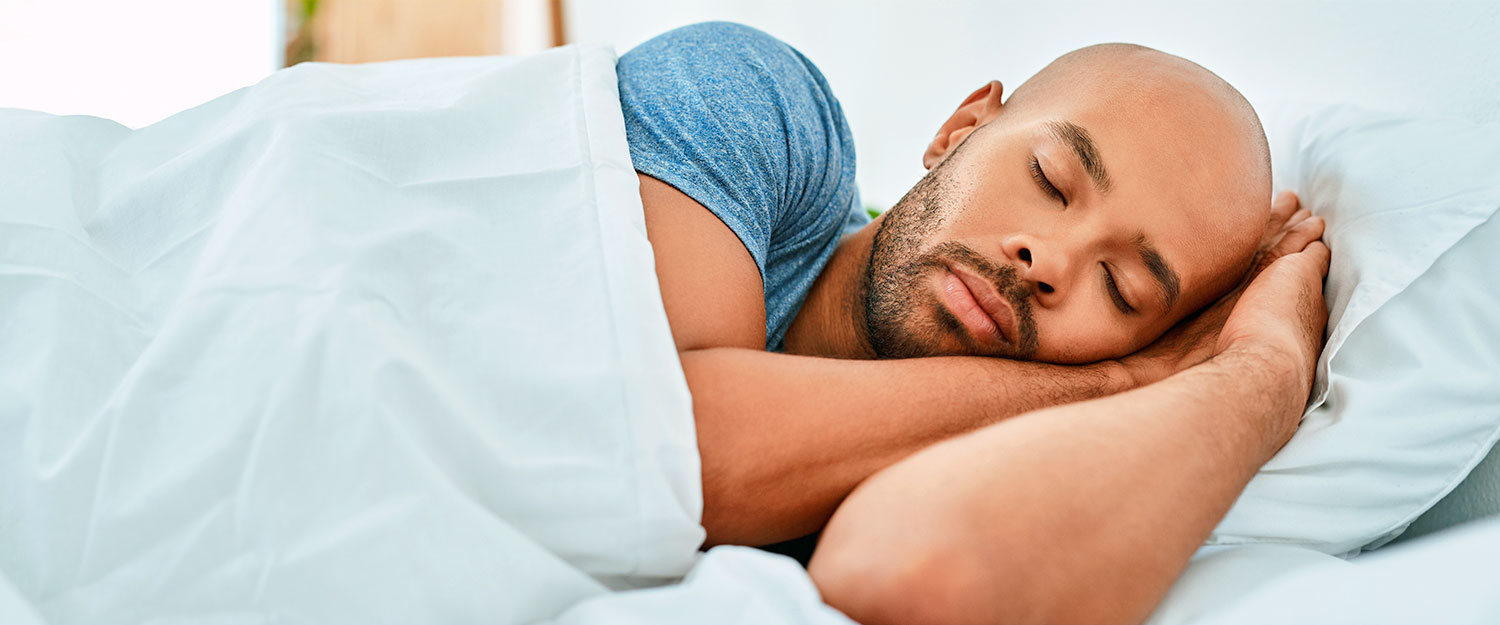Reliable Therapy Solutions for Managing Sleep Disorders and Enhancing Restful Rest
In the world of health care, the management of rest problems and the pursuit for restful rest are crucial parts of overall health. As we navigate the detailed landscape of sleep disorders and look for to boost our rest experience, a deeper understanding of these therapy options might hold the secret to unlocking a more rejuvenating and fulfilling restorative trip.
Cognitive Behavior Modification for Sleep Problems (CBT-I)
Cognitive Behavior Modification for Sleeplessness (CBT-I) is an organized, evidence-based treatment approach that concentrates on resolving the underlying variables adding to sleep disturbances. This type of treatment intends to change habits and thoughts that intensify sleeplessness, ultimately advertising healthy rest patterns. CBT-I generally involves numerous vital parts, consisting of cognitive treatment, rest restriction, stimulus control, and sleep hygiene education and learning.
Cognitive treatment aids individuals identify and transform negative thought patterns and beliefs about sleep that may be impeding their ability to drop or remain asleep. Rest constraint includes limiting the quantity of time invested in bed to match the individual's actual rest period, consequently enhancing sleep performance (sleep disorder treatment). Stimulation control techniques help develop a solid association in between the bed and rest by motivating individuals to visit bed just when sleepy and to stay clear of participating in promoting activities in bed
Furthermore, rest hygiene education concentrates on developing healthy and balanced rest practices, such as maintaining a regular rest schedule, developing a relaxing bedtime regimen, and enhancing the sleep setting. By attending to these elements comprehensively, CBT-I uses an efficient non-pharmacological intervention for handling sleeplessness and enhancing general sleep quality.
Sleep Hygiene Practices
Having actually developed the foundation of cognitive restructuring and behavior alterations in resolving sleeping disorders with Cognitive Behavior modification for Sleep Problems (CBT-I), the focus now changes towards checking out vital Rest Health Practices for preserving ideal rest quality and total well-being.
Sleep hygiene techniques include a series of practices and ecological variables that can dramatically impact one's capability to sleep and stay asleep throughout the night. Regular sleep and wake times, developing a relaxing going to bed regimen, and maximizing the sleep setting by maintaining it dark, silent, and cool are critical parts of great rest health. Restricting exposure to screens prior to going to bed, staying clear of stimulants like caffeine near going to bed, and engaging in normal exercise throughout the day can additionally advertise better rest quality.
In addition, practicing relaxation methods such as deep breathing workouts or reflection before bed can help relax the mind and prepare the body for rest. By integrating these rest hygiene practices right into one's day-to-day regimen, people can establish a healthy sleep pattern that supports peaceful sleep and overall well-being.
Leisure Strategies and Mindfulness
Carrying out leisure techniques and mindfulness methods can play a crucial role in promoting a sense of tranquility and promoting top quality sleep. In addition, guided imagery can assist transfer individuals to a peaceful location in their minds, helping in stress reduction and boosting sleep high quality.
Mindfulness practices, such as reflection and yoga, are likewise reliable in promoting relaxation and boosting sleep. Mindfulness urges individuals to remain present in the moment, allowing go of stress over the past or future. By integrating these techniques right into a going to bed regimen, people can indicate to their bodies that it is time to take a break and prepare for rest. On the whole, incorporating leisure techniques and mindfulness practices can substantially add to taking care of rest disorders and improving total sleep high quality.

Medication Options for Sleep Disorders
After discovering leisure techniques and mindfulness practices as non-pharmacological interventions for boosting rest quality, it is vital to consider medication alternatives for individuals with sleep disorders. In situations where lifestyle adjustments and therapy do not give adequate relief, medication can be a useful device in taking care of sleep disruptions.
Commonly recommended medications for sleep problems consist of benzodiazepines, non-benzodiazepine hypnotics, antidepressants, and melatonin receptor agonists. Benzodiazepines, such as diazepam, are sedatives that can help induce rest, but they are commonly suggested for short-term use because of the danger of dependancy. Non-benzodiazepine hypnotics like zolpidem are likewise made use of to deal with sleep problems and have a reduced danger of dependancy compared to benzodiazepines. Antidepressants, such as trazodone, can be helpful for people with co-occurring clinical depression and rest disruptions. Melatonin receptor agonists, like ramelteon, target the body's all-natural sleep-wake cycle and can be practical for controling rest patterns.
It is critical for people to seek advice from with a doctor to figure out the most suitable medication option based on their specific sleep condition and clinical history.
Light Therapy for Circadian Rhythm Law
Light treatment, likewise called phototherapy, is a non-invasive therapy approach used to regulate circadian rhythms and enhance sleep-wake cycles. This treatment includes direct exposure to bright light that mimics natural sunshine, which assists to reset the body's biological rhythm. By exposing individuals you can try here to details wavelengths of light, generally in the early morning or evening depending upon the desired impact, light therapy can successfully adjust the circadian rhythm to promote wakefulness throughout the day and boost restful sleep during the night.
Study has actually shown that light therapy can be specifically useful for people with circadian rhythm conditions, such as postponed rest phase disorder or jet lag. It can also be handy for those experiencing seasonal affective disorder (SAD), a sort of anxiety Discover More Here that typically happens during the wintertime months when all-natural light direct exposure is decreased. Light treatment is usually well-tolerated and can be utilized combined with various other treatment approaches for rest disorders to maximize results and boost general sleep high quality.
Final Thought
To conclude, effective therapy remedies for handling sleep disorders and boosting peaceful rest consist of Cognitive Behavior modification for Sleeplessness (CBT-I), sleep health practices, relaxation techniques and mindfulness, medication options, and light therapy for body clock law. These strategies can help people improve their rest quality and overall well-being. It is essential to seek advice from with a medical care service provider to identify the most ideal approach for addressing rest problems.
As we browse the detailed landscape of rest disorders and look for to boost our sleep experience, a deeper understanding of these treatment remedies might hold the trick to opening an extra relaxing and meeting corrective trip.
Rest constraint involves restricting the quantity of time spent in bed to match the individual's actual rest period, thus increasing rest performance. Regular sleep and wake times, creating a relaxing going to bed regimen, and enhancing the sleep environment by maintaining it dark, peaceful, and cool are vital parts of good sleep hygiene. Light therapy is usually well-tolerated and can be used in conjunction with other therapy discover this methods for sleep disorders to enhance end results and improve total sleep top quality.
